going home after rehab
Transitioning from drug and alcohol rehab to real life represents the single greatest challenge to everyone leaving rehab.
If the thought of transitioning back to your real life doesn’t feel overwhelming yet, get ready, it will.
To increase the possibility of a successful transition, Costa Rica Treatment Center asks clients to thoroughly evaluate the possibility that, when possible, they not return home after treatment.
Here are a few reasons why.
- The way you react to life remains instinctual and involuntary: Despite the work you’ve done with a therapist or a sponsor in rehab, there’s little chance your programmed and instinctual reactions to life have changed much. The process of re-scripting primary programming takes a long time and a lot of work.
- The environment that fostered substance abuse in the first place hasn’t changed: So you went away to drug rehab abroad. There, you are taking a serious look at yourself and have begun developing personal awareness around the issues that need addressing. You may have uncovered several of those issues and begun the healing process. Unfortunately, aside from taking a break from you, many of the outside factors that triggered using substances remain unchanged and may have intensified in your absence.
- Home often includes family of origin: If returning home includes proximity to family of origin, you will likely be returning to childhood trauma and other subconscious disturbances that will make the desire to numb out with substances indefensible.
- You, your identity, and your history: Without question, much of the work you will do in rehab is designed to deconstruct a flawed identity and rebuild a healthier one. Your previous identity, who you were before you left for rehab, the years of baggage you produced and ran around with are known quantities in the community you come from. You need a new start, a clean slate. Folks back home are often not inclined to provide that.
- Time, Practice and Repetition: Time, practice and repetition are the 3 essential qualities to mastery of anything in life. We need to acquire all three of them to have a chance at successfully executing the radical change our lives undoubtedly require.
What about my responsibilities?
Shucking personal responsibility is never an advised component to any addiction recovery plan. On the contrary, most recovery plans include a healthy dose of addressing the messes you’ve made and cleaning them up.
The problem lies in the plural of the word mess….messes. Nothing will overwhelm a person in early recovery more than the monumental task of sorting through the muck and mire of a life driven by the madness of an addicted mind.
When possible responsibly addressing these issues individually, 1 at a time, is advised. Unless you have an incredible support system, one educated and practiced in the nuances of dealing with addicts/alcoholics, a return home is probably not going to allow this to occur.

A Step-by-Step Guide Home
It’s important for us to emphasize that even when you’re away from Costa Rica Treatment Center, you are not alone. While our center provides a holistic, structured environment for individuals to work on their dependencies, returning to the real world represents the single greatest challenge for everyone leaving rehab: staying true to one’s new self.
These are some of the steps we suggest you take on your way home:
- Create a plan for continued sobriety: It’s essential to have a plan for maintaining sobriety after leaving rehab. This might include attending support group meetings, seeking out individual counseling, or finding a sponsor.
- Identify potential triggers: Think about the people, places, and situations that could potentially trigger cravings or thoughts of using. Make a list of these triggers and develop a plan for how to avoid or manage them.
- Build a support system: It’s important to have a strong support system in place, including family members, friends, and healthcare professionals. Communicate your needs and boundaries with your support system, and ask for help when you need it.
- Develop healthy habits: Establishing healthy habits can be a powerful tool for maintaining sobriety. This might include eating well, getting enough sleep, exercising regularly, and practicing mindfulness or meditation.
- Set realistic goals: It’s important to set realistic goals for yourself, both in the short term and the long term. Start with small, achievable goals and build up from there.
- Practice self-care: Taking care of yourself is crucial during the transition from rehab to real life. This might include taking time for yourself each day, engaging in activities you enjoy, and practicing self-compassion.
- Stay accountable: Accountability is key to maintaining sobriety. This might involve regular check-ins with a therapist or sponsor, tracking your progress towards your goals, or sharing your experiences with others who are going through similar struggles.
Remember, the transition from rehab to real life can be challenging, but it’s important to take it one day at a time and to stay focused on your goals. With the right support and strategies in place, you can successfully navigate this transition and build a fulfilling, sober life.
Alternatives to Going Home
A Structured Sober Living Environment (done right) is undoubtedly the most effective model in helping people successfully transition back into life. The two components that helped get you clean, support and structure, will remain essential to navigating the murky waters of life outside a treatment center.
Sometimes informal sober living scenarios arise within populations whereby people group up and provide each other the structure and support necessary to pull off early recovery. Identifying people who are serious about recovery and will have a positive influence on your life can be tricky, but its certainly a skill you will need to start honing.
If neither of these scenarios are possible, I often suggest clients ‘cling to the program like a monkey on a tree in a hurricane.’ Excessive meeting attendance and fellowshipping, finding a sponsor or recovery coach, providing service to the recovery community, whatever you can do to help recreate the connection, support and structure needed to successfully transition.
If Nothing Changes
How are you willing to change? What are you willing to change? What expectations and limiting self-beliefs do you regularly impose on your life? Is relocation, permanent or temporary, advisable for me? These are questions that should be posed and answered with a professional in a controlled setting.
What we do know is that if nothing changes, nothing changes, and that which remains unexamined and unchanged will consciously or subconsciously seep back into our thinking and behavior.
Because as addicted as we are to the substances we use, we are equally if not more addicted to the way we think and behave, our relationships, and the drama, conflict, and excessive stimulation of our previous lives.
Rehab might initially save your life, but where you go and what you do afterwards will determine if you get to keep it.
For more information contact us toll free at USA/Canada 1800 708 3656 or email us your inquiries at info@costaricatreatmentcenter.com








